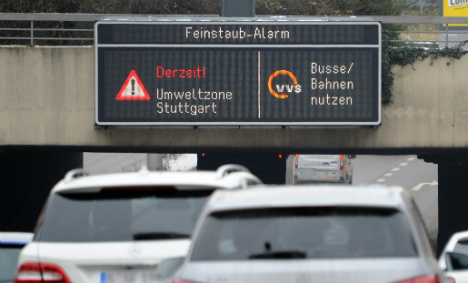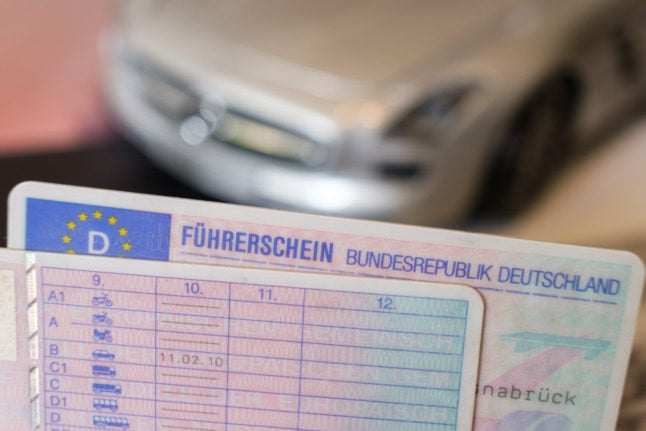There are already 51 zones in German towns and cities where only cars with existing green emissions badges are allowed to enter.
But around 90 percent of cars already meet the emissions standards to qualify for a green badge, the Federal Office for the Environment notes.
Planned blue badges on cars will allow the quick and easy identification of cars that emit the lowest levels of harmful pollutants in their exhaust.
After a conference with state environment chiefs in Berlin on Thursday, deputy environment minister Jochen Flasbarth said new rules could allow cities to introduce blue-only zones before the end of 2016.
Environmental charities have long demanded a more stringent emissions check that would qualify cars for different markings.
But it's likely that any zones reserved exclusively for the lower-emitting cars would be much smaller than the current green zones.
“This is a move to address symptoms in places where nothing else works,” Flasbarth said.
No end to diesel tax breaks
A push by five of Germany's federal states – including Volkswagen's home state of Lower Saxony – to end tax breaks for diesel was rejected after meeting resistance from others including Bavaria, home to BMW and Audi.
“We need diesel to protect the environment,” Bavarian environment minister Ulrike Scharf said.
Diesel exhaust contains more fine particles which can increase the risk of cancer in humans.
But Scharf insisted that “these motors emit significantly less carbon dioxide” – allowing the country to meet its overarching emissions targets.
The federal government – whose transport minister, Alexander Dobrindt, is from the Bavarian Christian Social Union (CSU) – has also made clear that it does not support increasing diesel taxes to fight emissions.
SEE ALSO: Stuttgart asked to stop driving as city faces record pollution



 Please whitelist us to continue reading.
Please whitelist us to continue reading.
Member comments